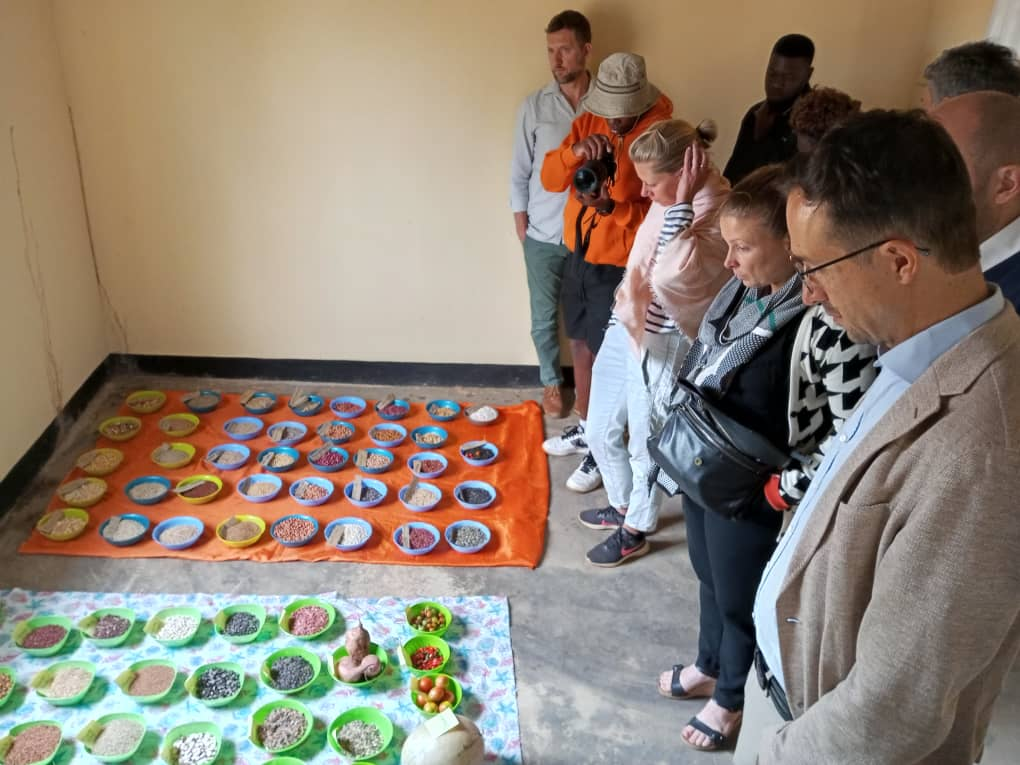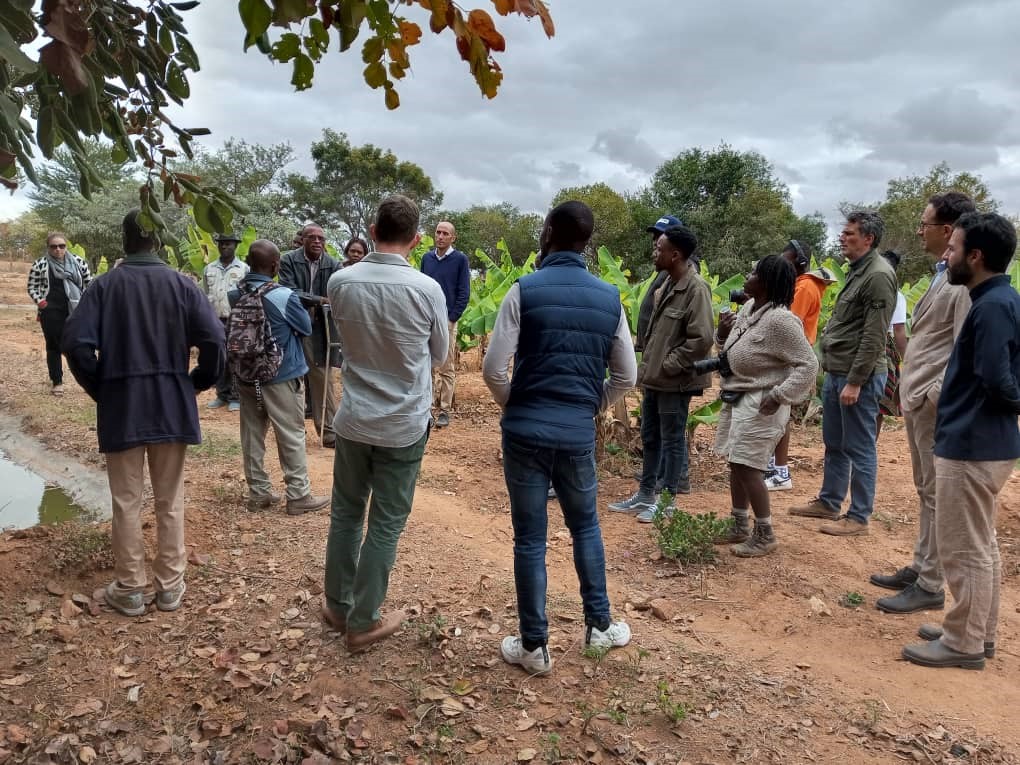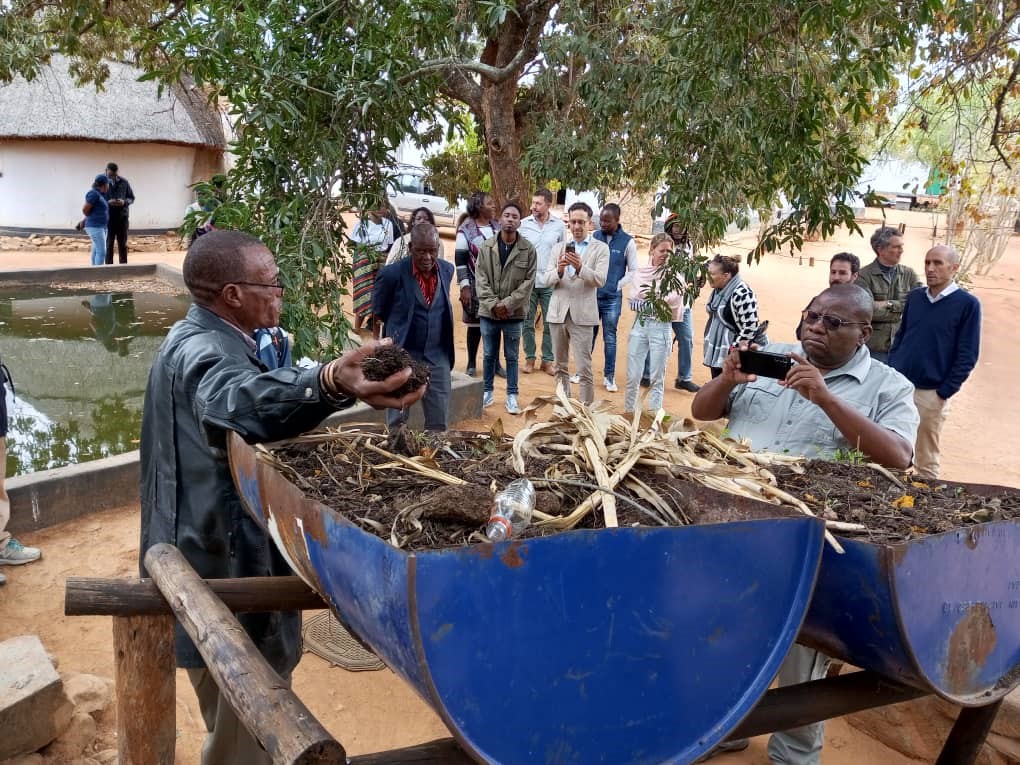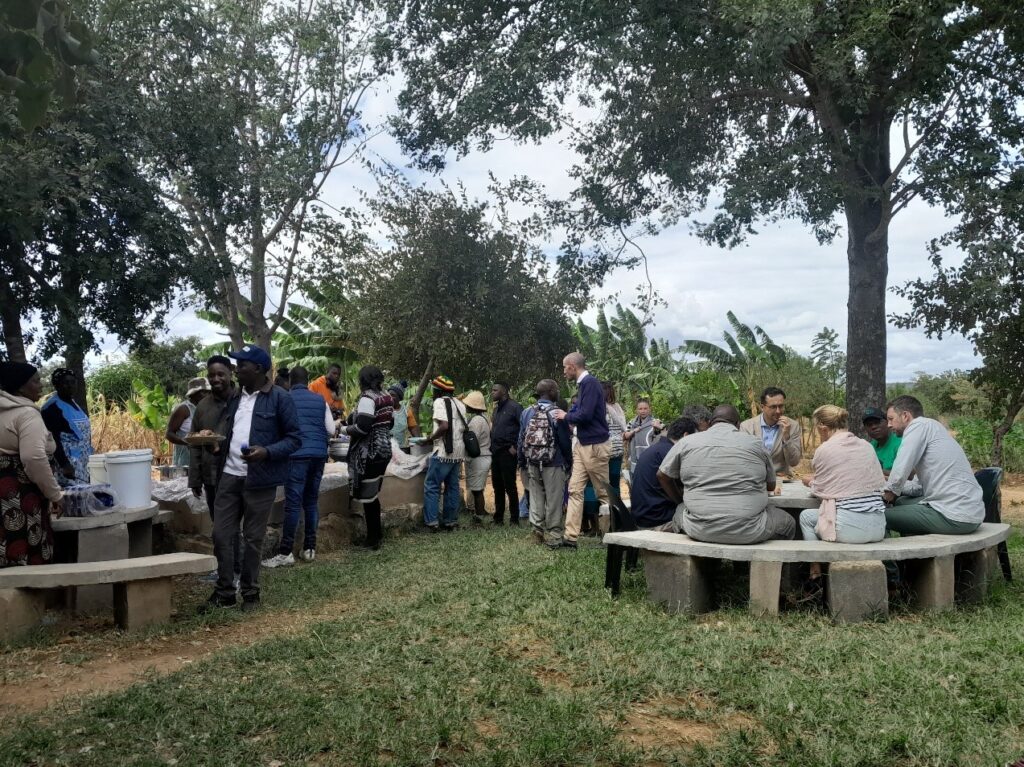
By Patience Shumba and Christopher Chinyoka
On the 15th of May, a delegation consisting of Heads of Cooperation from EU member states, the Deputy Ambassadors from the Embassies of Switzerland, Netherlands, France, Ireland, and the European Union and representatives from organizations implementing EU-funded projects, namely COSPE, Action Against Hunger, LIPS-ZIM, and SKI, VSO, visited the Shashe Agroecology School.
The main objectives of the visit were threefold- first, to gain a deeper understanding of the resilience of sustainable agriculture and sustainable agri-businesses on Zimbabwe’s economy and welfare, second- identify current and potential areas of cooperation, and third, discuss the main challenges faced during implementation of various agroecological interventions. An ancillary but equally important aim was to reinforce the European Union’s joint action under the Team Europe Initiative – Green Climate-Smart Agriculture (TEI-GCSA) that aims to foster collaboration and expertise sharing.
The delegates visited projects being implemented in Chiredzi, Mwenezi and Masvingo districts. Finally, on the last day the delegation visited the Shashe Agroecology School where they witnessed a rich diversity of farmer saved seeds which were displayed by local seed custodians of which the majority of them were women. There was a rich discussion setting up the tone of the visit at the Agroecology School coordinating center that focused on successes, the lessons and the challenges of practicing agroecology, as well the aspirations of the local farmers.
Mr. Mudzingwa, the National Coordinator of ZIMSOFF, provided an overview of the Shashe Community, including its history and how the 800 households in the Shashe block have progressed and transitioned to agroecology since the land reform program of 2000. Mr. Mudzingwa highlighted the community’s focus on sustainable farming practices and explained the need to respect the intricate relationship among the four friends of life namely: Soil, Water, Seed, and Stone. These four friends anchor principles of agroecology.

The women seed custodians’ seed displays were an eye opener to the delegates illustrating the diversity of food crops in the Shashe Smallholder Farmer Organization. All seed displays were well labelled catching the eyes of the delegates and forcing most of them to stand still analyzing such huge households’ seed diversity displays.
The delegation visited two Centers of Excellence at Mr. Mudzingwa’s and Mrs. Mpofu’s homesteads. The visitors witnessed practical applications of agroecological practices, including, water harvesting and soil conservation techniques, integration of trees and shrubs into farming systems to enhance biodiversity and soil health, conservation of indigenous seeds, crop-livestock integration.
From the coordinating center the delegates were led to Mr Mudzingwa’s center of excellence. In order to feel the environment of the Shashe Agroecology School, all the delegates decided to walk enjoying the rich bio diversity mainly of well pruned indigenous trees along the road.

Mr Mudzingwa led the tour showcasing the interrelationship of the four friends of life and how these are leading to achieving the principles agroecology. In the interest of time the delegates toured the fish farming, fruits production, worm farming, nurturing of indigenous trees and the seed heritage archive. There was drama that illustrated the value of local seed systems in building climate resilience among the smallholder farmers.
The visit enhanced the delegation’s understanding of the impact of agroecology on local economies and livelihoods. The practices observed at the Centers of Excellence demonstrated effective strategies for sustainable agriculture that could be replicated in other communities. Finally, the visit reinforced the commitment to joint action under the TEI-GCSA, fostering collaboration among EU member states and local organizations.

The EU delegation was left in awe after visiting Shashe and interacting with farmers from the area. In addition to the innovations which they saw, the delegation was treated to various entertainment which was provided by local farmers. Living to local culture, “Ukama igasva, huzadziswa nekudya”- a relationship is incomplete until it is sealed with the sharing of food”-the delegation was later treated to sumptuous traditional cuisines for lunch.
